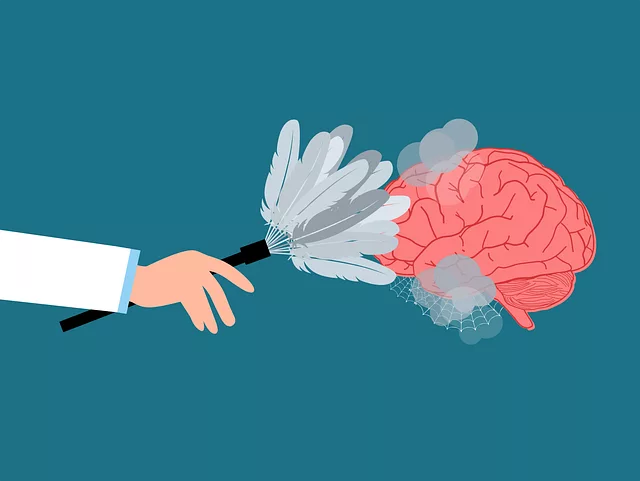Mental wellness self-assessment tools are vital for identifying individual mental health needs and guiding informed decisions about therapy. Organizations like Kaiser in Centennial utilize comprehensive, holistic approaches, combining empathy and inner strength development to ensure long-term well-being. These tools, integrating personal insights and societal influences, promote public mental health awareness, reduce stigma, and encourage proactive emotional management. Understanding these assessment methods is key when seeking therapists, such as questioning if Kaiser's services in Centennial meet individual needs.
Mental wellness self-assessment tools play a pivotal role in individual understanding and pursuit of holistic well-being. This article delves into the development and importance of such tools, focusing on evaluating mental health services. We explore whether Kaiser, specifically in Centennial, offers quality therapy through a comprehensive analysis of their practices. By examining various factors, we aim to guide individuals in selecting effective self-assessment resources for their mental health journeys.
- Understanding Mental Wellness Self-Assessment Tools
- Exploring Kaiser's Therapist Quality in Centennial
- Developing Effective Self-Assessment Tools for Mental Health
Understanding Mental Wellness Self-Assessment Tools

Mental wellness self-assessment tools play a pivotal role in recognizing and addressing individual mental health needs. These tools are designed to help people gain insight into their emotional well-being, thought patterns, and behaviors, enabling them to make informed decisions about seeking support or starting a journey towards improved mental health. By offering a comprehensive overview of one’s psychological state, these assessments can be life-changing, especially for those struggling in silence.
In the context of finding quality care, individuals seeking therapists in areas like the Centennial region might wonder, “Does Kaiser have good therapists?” Such inquiries highlight the importance of understanding mental wellness tools and their role in matching individuals with suitable treatment options. With access to resources like Trauma Support Services and Mental Health Education Programs Design, people can navigate their path to healing and empowerment, ensuring they receive the best care possible tailored to their unique needs, just as a well-designed assessment tool would guide them.
Exploring Kaiser's Therapist Quality in Centennial

In the vibrant landscape of mental wellness services, exploring the quality of therapy is paramount. Kaiser, a well-known healthcare provider in Centennial, has been under scrutiny for the effectiveness of its therapist offerings. Many individuals seeking support wonder, does Kaiser have good therapists in Centennial? The answer lies in examining the tools and strategies employed to foster mental wellness.
Kaiser’s commitment to empowering its clients extends beyond traditional therapy sessions. They invest in a diverse range of resources, including empathy-building strategies, to enhance the therapeutic experience. By nurturing inner strength development, Kaiser aims to equip individuals with resilience and coping mechanisms. This holistic approach ensures that patients not only address immediate concerns but also build lasting skills for overall well-being.
Developing Effective Self-Assessment Tools for Mental Health

Developing effective self-assessment tools for mental health is a multifaceted process that involves understanding both the individual’s inner landscape and societal factors influencing their well-being. Organizations like Kaiser, with its network of skilled therapists in Centennial and beyond, serve as models for integrating accessible, user-friendly assessment methods. These tools play a pivotal role in fostering public awareness campaigns about mental health, enabling individuals to take charge of their emotional and psychological state.
By harnessing the power of technology and evidence-based practices, self-assessment tools can facilitate the early detection of mental health issues while promoting positive thinking and inner strength development. This proactive approach not only benefits individuals but also contributes to a broader cultural shift, reducing stigma and encouraging open conversations about mental wellness.
Mental wellness self-assessment tools play a pivotal role in empowering individuals to take charge of their mental health. By examining factors like therapist quality, as highlighted by Kaiser’s experience in Centennial, we can develop effective tools that accurately reflect an individual’s well-being. Integrating these tools into routine check-ins and self-reflection practices can foster early intervention, better outcomes, and improved access to care, ultimately enhancing the overall mental health landscape for all. With continued research and development, self-assessment tools have the potential to revolutionize how we approach and support mental wellness.






